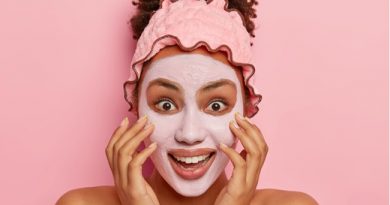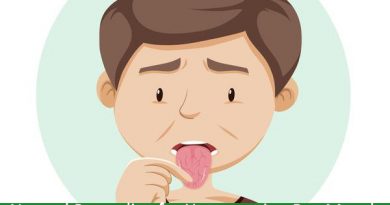Natural Alternatives to Retinol to control Ageing
Abstract
Aging is an inevitable process which involves the intrinsic/chronological types, but photoaging on the other hand involves the premature aging like changes of the skin due to the over/repeated/continuous exposure to UV radiations. Skin is the largest organ of the body that has a prime function of protecting all the other organs from the external environment. Genetic factors, exposure to environmental factors such as xenobiotics, mechanical stress and UV radiations,metabolic changes and hormonal changes, these all factors act on the changes in the function, structure and appearance of the skin. Retinol (vitamin A) is very helpful in reducing skin wrinkles and piles off the dead skin from the face or body.Today we will discuss how retinol is effective in controlling ageing and what are the natural alternatives to it?
Before moving forward, let’s see what changes occur in ageing?
Changes in aging
Chronological/intrinsic changes
This gradual process is defined as the physiological, clinical, and histological decrements that occur even in the sun protected skin and affecting dermal thickness, rate of epidermal turnover, rate of re-epithelialization after injury, thermoregulation, immune responsiveness, sebum and sweat production, mechanical protection, clearance of unwanted chemical wastes from dermis, and vascular reactivity. Aged skin is atrophic which results in loss of elasticity and prominence of vasculature. Other important decreased functions include the formation ability of vitamin D3 due to the reduced synthesis of 7-dehydrocholesterol in the epidermal cells. Photoaging is the combined term given for chronological aging with superimposed photodamage, which results in premature aging. This damage is mostly done by the chronic exposure of skin to UV light.

Retinols and Its Anti-Aging Role
Retinol is one of the best over-the-counter types of retinoids, and is a vitamin A derivative. The small molecules of Retinol go beneath the epidermis. In the skin’s middle layer, retinol aids in neutralizing the free radicals, to enhance the production of collagen and elastin. This will create a plumping appearance that helps in reducing the appearance of wrinkles, fine lines, and enlarged pores. The exfoliating effects on the surface of the skin that are beneficial in improving the tone and texture. The comedolytic agents created by the retinol helps in unclogging the pores and help in preventing the formation of blemishes or comedones. The retinol has an effective role in balancing the hydration levels of skin.
There are a number of aging related disorders treated by retinol and those skin conditions include fine lines, wrinkles, acne, sun spots, freckles and other signs of photoaging, formation of large pores by oily skin, acne or collagen loss, melasma, uneven skin texture and types of hyperpigmentation.
Natural Alternative for Retinol
1. Carotenoids
Carotenoids are the best natural alternatives which can be utilized by our bodies to convert to usable retinoids naturally. The beta-carotene rich food articles include carrot, sweet potato, spinach, kale, winter squash, seaweed extract, chicory root and sunflower oil, and fruits such as mango butter, apricots, and cantaloupe. These natural plant-based carotenoids are safe to use and frere of red, flaky and burning adverse effects of synthetic retinol.
How to use
Mango butter, sunflower seed oil, and seaweed extract, chicory root extracts can be used as local application on the facial as well as other exposed parts of the body, whereas the other sources needed to be included in the daily dietary regimen.
Despite carotenoids, the other natural phytochemicals are not able to convert the vitamin A to required usable retinoids but many of them can show the similar desired effects to that of retinol. These other phytochemicals along with their rich and potential sources include
2. Lycopene
This is found in tomatoes and fruits and vegetables having red colour. The benefits of this phytochemical include the powerful antioxidant property that helps in reducing the roughness in the skin and inhibition of the collagen breakdown to keep the firmness of the skin.
3. Immortelle Flower Oil
The oil of this plant’s flower boosts the protective barrier of the skin and helps in reducing the susceptibility of damage to skin from sun exposure. Also immortelle oil, are the rich source of antioxidants, essential fatty acids which help in promoting the production of collagen and smoothening of fine lines. It could be used for improving the damaged skin and pigmentation of scars due to its rejuvenating effects.
4. Black Elder
Rutin’s anti-edema and rich antioxidant qualities help in reducing puffiness.The elderberries obtained from this herb have a beneficial role in boosting the immune system. Quercetin, can help in reversing the premature aging related appearance.
5. Niacinamide (Vitamin B3)
This vitamin is very much essential in reducing the appearance of dark spots and wrinkle reducing effects. The natural sources of vitamin B3 include legumes, seeds, green leafy vegetables, niacin, yeast, cereals and milk.
Ayurveda, being the ancient Science of life and medicines, also has some herbs which are having anti-aging effects. Acharya Charaka had mentioned the Vayosthapan Mahakshay(10 best herbs having anti-aging properties).
(Reference- Charaka Samhita Sutra sthana 4/8/50)
10 Best Herbs Having Anti-aging Properties
- Amrita (Tinospora cordifolia)
- Abhaya (Terminalia chebula)
- Dhatri (Emblica officinalis)
- Yukta (Rasna- Pluchea lanceolata)
- Shweta (Clitoria ternatea)
- Jiwanti (Leptadenia reticulata)
- Atirasa (Asparagus racemosus)
- Mandookparni (Centella asiatica)
- Sthira (Desmodium gangeticum)
- Punarnava (Boerhavia diffusa)
Acharyas (Ancient Sages), had also mentioned the Rasayan therapy which contains several herbs or herbal formulations that are having both anti-aging and rejuvenating properties.
Conclusion
At last, this can be concluded that the retinoids are the essential needs of our skin and these must be provided to the skin in the adequate quantities. But the synthetic retinoids which are used conventionally along with other harmful chemicals can affect the skin and facial tone and elasticity in a very drastic way. But, the use of these carotenoids and other natural sources of retinol or retinoid like compounds is very much essential. The chronological aging is inevitable but the premature aging effects due to photoaging or other causes can be delayed or even reversed by following the adequate diet, lifestyle and nutrition by including the natural sources of these phytochemicals and vitamins in daily diets.





